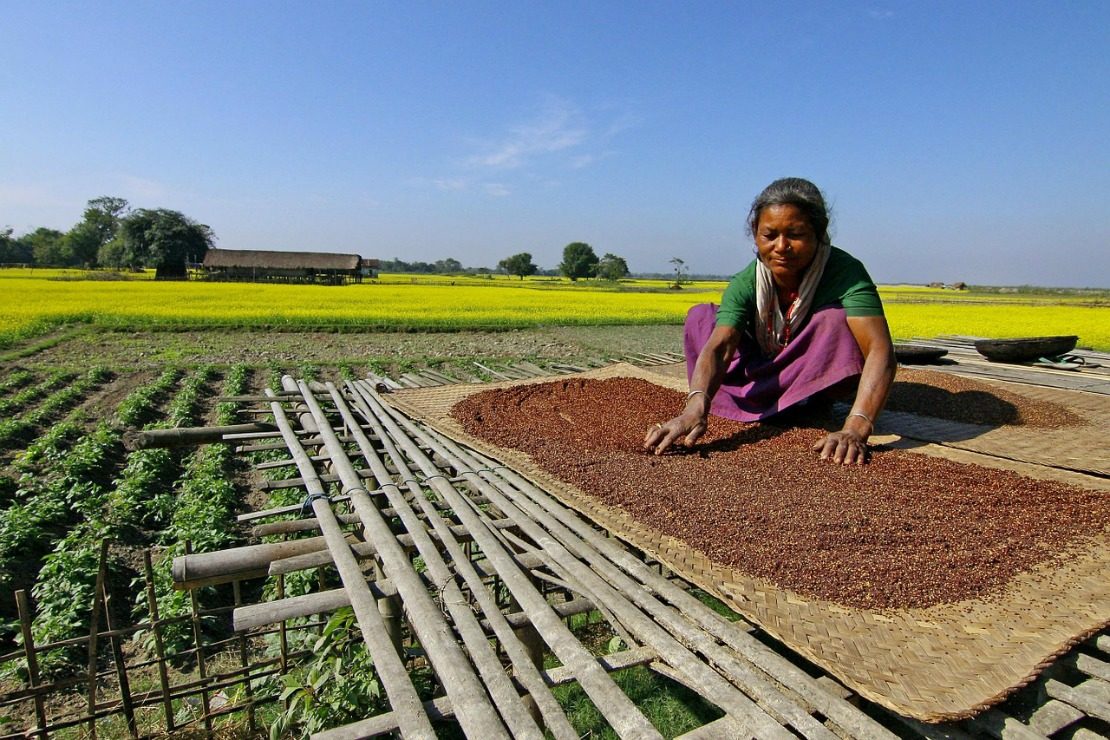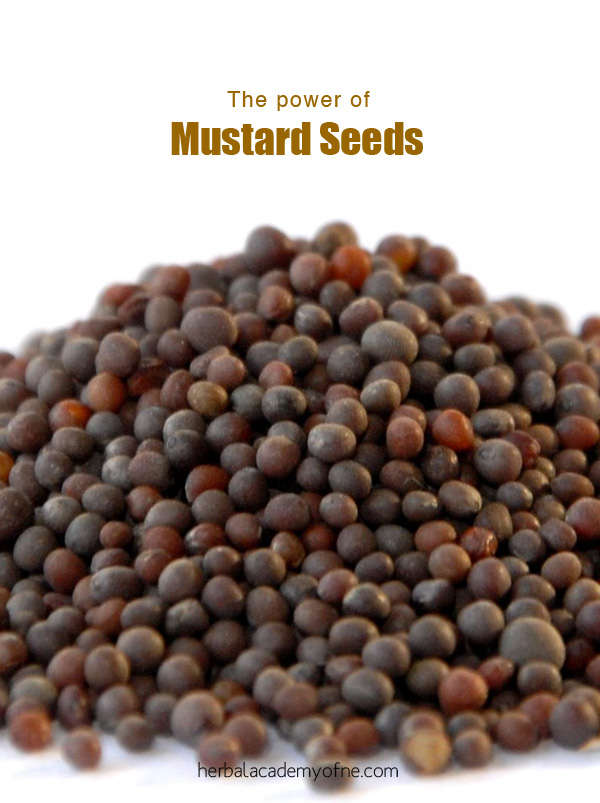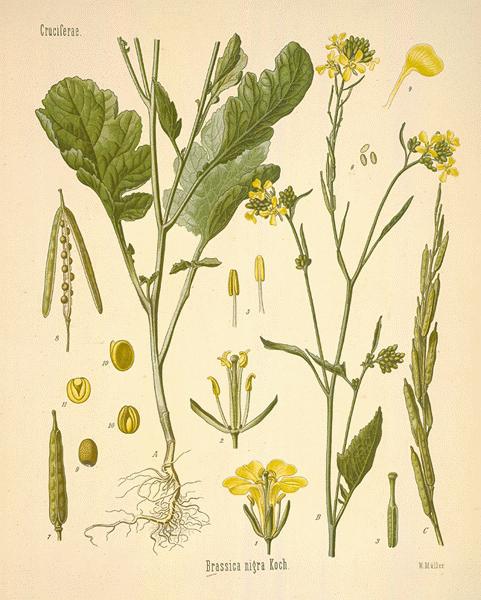
Do You Know the Power of Mustard Seeds?
Have you ever heard the word “mustard” and thought about something other than a yellow condiment used during summer barbeques? If you’re like most people Stateside, probably not. Our primary association with mustard is that it’s an alternative (or a companion) to ketchup. But did you know that mustard seeds can be of tremendous value—and arguably, even greater value—when used as an herbal remedy in the wintertime?

Mustard, which includes a variety of plants in the genus Brassica, produces seeds that play a distinctive role in different herbal traditions. When you have sampled mustard as a condiment, you have likely noted its pungent, spicy quality. This reflects particularly warming properties, and will induce a buildup of quite a lot of heat much how we might break into a sweat if we ate a lot of spicy food. But this intense pungency makes it particularly potent in a variety of herbal remedies (Tirtha, 1998).
When considered in the context of wintertime, perhaps the most noteworthy application of mustard seeds is its value as an expectorant. After the body produces heat in response to cold weather, it must then fortify itself to remain balanced. When this fortification becomes excessive, we produce moisture. The mucus we experience through a runny nose or phlegm is a demonstration of this process taking place in excess (Lad, 1984).
To assume balance once again, a person with too much moisture in the body can incorporate the use of mustard seeds into their cooking. The pungency and heat of the seeds helps digest the moisture congesting the body.
Mustard seed also contains the antioxidant curcumin, which is the same phytochemical found in turmeric (you can learn more about turmeric here), corn, and yellow peppers (Holford, 2004). The anti-inflammatory properties of curcumin offer us one theory as to why mustard is also used as an analgesic for reducing pain.

A popular remedy in some herbal circles is the use of mustard seeds to relieve pain in the muscles and joints. As a demonstration of the strength of this herb, though, the remedy is to place seeds in a cloth, place the cloth in hot water, and then place the affected joints in the water—not in direct contact with the seeds. Direct contact can lead to blistering (Lad, 1984).
Mustard seeds can be a reliable but ultimately potent way to help us stay warm. Just as this heat will make it a valuable antidote to harsh winters, it also makes a case for our not using so much of it during the many picnics and barbeques we attend during the summer!
REFERENCES
Holford, Patrick. The New Optimum Nutrition Bible, (New York: Crossing Press, 2004).
Lad, Vasant. Ayurveda. (Twin Lakes, WI: Lotus Press, 1984).
Tirtha, Swami Sada Shiva. The Ayurveda Encyclopedia. (Bayville, NY: Ayurveda Holistic Center Press, 1998).







